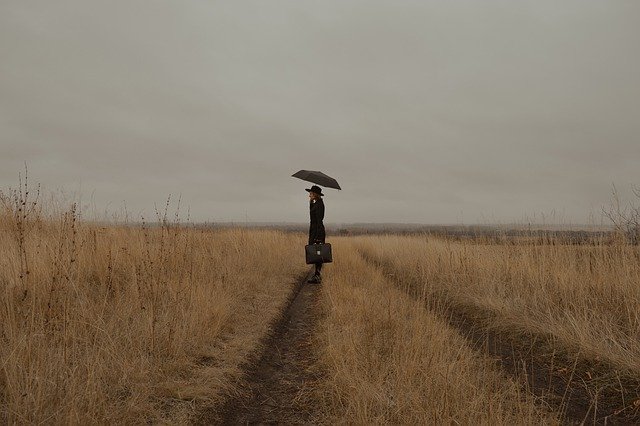Everyone gets the blues every now and then. Feeling sad, being lonely, or experiencing grief are natural and healthy reactions to the events you go through in life. Most of the time you manage to carry on, knowing you’ll feel better soon. But what happens if you don’t feel better?
Most people get over the blues within a couple of days. But if you’ve been feeling this way for weeks or months, you may be experiencing something more serious than a case of the blues. If your feelings of sadness are excessive or get in the way of your work, sleep, or relationships, you may be depressed.
Around 21 million adults across the US experience depression each year, with women being almost twice as likely as men to be majorly depressed. The condition is most common in adults aged 18-25, but depression can be experienced by anyone, regardless of age, sex, or race.
Sadness vs. depression
There are several ways to differentiate between sadness and depression. The first is the length of time it goes on. If you’re been experiencing the same feelings of sadness, loneliness, or grief every day for more than two weeks, it’s likely you’re suffering from something more serious than just a case of the blues.
The second way to tell being down and being depressed apart is the symptoms that define them. Being blue is typically classified as experiencing feelings of sadness, melancholy, and loneliness. While these feelings may also be present in depression, there are many other symptoms, too.
Simple sadness often goes away when you do something enjoyable, while depression tends to sap the joy out of things you once found fun. Watching something funny, spending time with friends, or doing a favorite hobby will lighten your mood if you’re feeling blue. But if you’re depressed, you may have problems finding the energy to do these things at all.
One of the most significant ways to tell if you’re depressed or just down in the dumps is to determine the cause of your feelings. If you’ve just broken up with your partner, lost your pet, missed a major opportunity, or are frustrated with your life, it’s likely you’re just feeling blue. Experiencing feelings of sadness after something bad happens is a healthy way of processing the event.
If there’s no real reason for your feelings and they’re not going away on their own, it may be time to seek professional help. Depression rarely goes away on its own. A therapist will be able to assess you for depression, before helping you manage and treat your symptoms so you feel better.
Symptoms of depression
Depression presents itself in a number of different ways. Although two people may both be clinically depressed, they may experience different variations and intensities of symptoms. Here are some of the most common depression symptoms:
- Feeling depressed, sad, or empty
- Appearing sad or tearful to others
- Lacking interest in things you used to enjoy
- Unintentional weight loss or gain
- Changes in sleeping patterns
- Irritability or restlessness
- Fatigue or loss of energy
- Feeling excessively/inappropriately guilty or worthless
- Troubles concentrating or making decisions
- Recurring thoughts of death or suicide
Behavioral changes
It’s not always easy to spot depression in yourself. You may be too overwhelmed by your feelings to realize what’s going on or shrug them off feeling like you’re just having a bad few weeks. Behavioral changes that indicate depression are often easier to recognize.
Here are some of the most common changes in behavior you may experience if you’re depressed:
- Arguing or not getting on with your partner
- Avoiding going out whenever possible
- Being withdrawn from friends and family
- Being unproductive at work/school and not completing tasks
- Relying on alcohol, drugs, or sedatives to get through the day
Sadness is normal
Feeling sad is normal. Feeling depressed isn’t. Being unhappy may not feel good, but it’s your mind’s response to the challenges you’re facing. Feeling blue can often be an indicator that something in your life isn’t right. It can help you identify changes you need to make to boost your mood and feel better.
What to do if you think you’re depressed
If you’ve been feeling down for weeks or longer, you may be depressed. The best thing to do is to schedule an appointment with a therapist or arrange to see your doctor. A doctor may prescribe medication or give you a referral to see another professional. A therapist may be able to help you get to the root of the problem by talking about your feelings and experiences.
No matter how bad you feel or how long you’ve been experiencing these emotions, feeling depressed doesn’t have to be a permanent state. Find the strength to seek help and get back to enjoying life the way you used to.
About the author: Sonya Parrott
Sonya is a Marriage and Family Therapist with over 13 years of experience in the mental health field. Her background includes working with Families, Adults, teens, and children in individual, family, couple, and group settings. She has extensive experience and training in the areas of Anxiety, Depression, Substance Use, Post Traumatic Stress, Family conflict, and Codependency.








